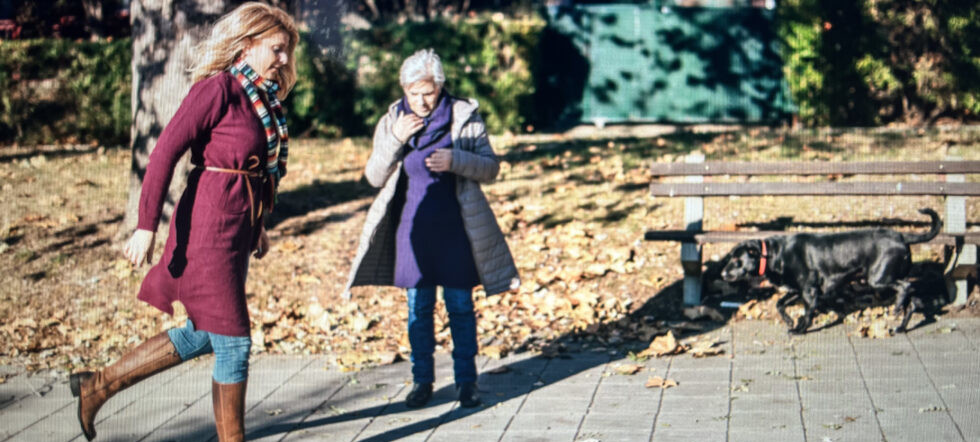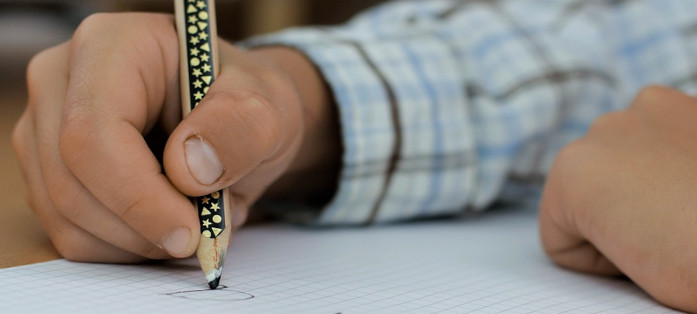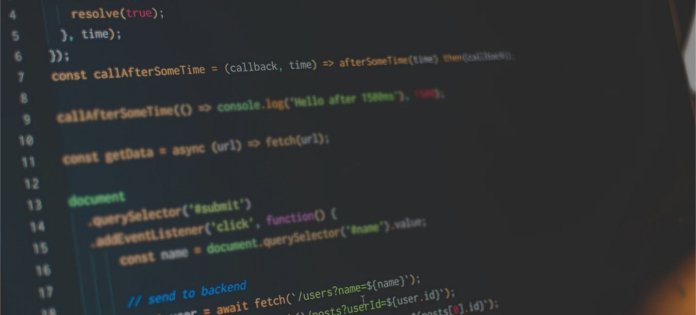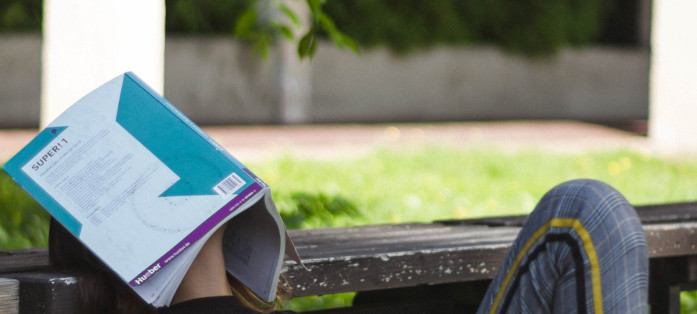INSTITUTE FOR SUPPORT OF INNOVATIVE EDUCATION
We are here for Czech innovative and alternative initiatives in education to create supportive conditions for them. We provide consultations about creation and management of schools, we map educational innovators and related organizations, we mediate contact, we try our own or external educational innovations and we help to adopt those successful ones in common educational practices.
SEMINARS

Pedagogy from the heart
The training focuses on pedagogically active people who are convinced in their activities that they and the people around them are helped when they work on themselves. It is intended for those who want to discover, develop and deepen their own inner abilities to play, expand their ability to act, their creativity and curiosity.
The key is that the person really plays and activates their own liveliness. We will also look at obstacles and limitations (obstacles to playing), which appear and work with them.

How to choose a school for your child?
How to stay open-minded and enthusiastic? How to react to things that bother us at school? How to process within us the pressures that are pouring in on us from all sides? When does it make sense to fight and when not? How to communicate our demands and requests to students, parents and leadership so that we do not get into constant conflicts? What to do when we are already in conflict? How to be in communion with children so that it brings us energy?

Teach software development as craftsmanship
This seminar is about how to approach the teaching of programming alternatively by imitating the teaching of crafts, as was done in the days before the Industrial Revolution. What are the specifics of this approach? How is it possible to introduce it in the reality of today’s education? In addition to those interested in innovating teaching in programming, the seminar can serve well as an inspiration in efforts to innovate other areas of education of hard competencies. The seminar is also suitable for creators of educational systems and organizations, as it is possible to point out a number of practical examples of everything that needs to be addressed when implementing changes in education.

How to teach and avoid burnout?
How to stay open-minded and enthusiastic? How to react to things that bother us at school? How to process within us the pressures that are pouring in on us from all sides? When does it make sense to fight and when not? How to communicate our demands and requests to students, parents and leadership so that we do not get into constant conflicts? What to do when we are already in conflict? How to be in communion with children so that it brings us energy?
TOPICS THAT ARE IMPORTANT TO US
The Institute is regularly asked to organize a lecture, seminar or a discussion evening on various pedagogical topics.
nezobrazuj se!
Jak to vypadá v alternativních školách u nás a v zahraničí? Co se skrývá za pojmy Montessori, Waldorf, či Summerhill? Jaké jsou výhody i nevýhody jednotlivých směrů? Nakolik se v praxi daří dosahovat deklarovaných ideálů? Pro koho se jednotlivé směry hodí? Co se žáci v takovýchto školách naučí? Jsou úspěšní při přechodu na další školy a v životě? Jak vybrat vhodnou školu?
The world of alternative schools
What does it look like in alternative schools in the Czech Republic and other countries? What is behind the terms Montessori, Waldorf, or Summerhill? What are the advantages and disadvantages of each pedagogical approach? To what extent are the declared ideals achieved in practice? For whom are the individual pedagogical directions suitable? What will students learn in such schools? Are they successful in moving to other schools and in life? How to choose a suitable school?
What will children learn in an alternative school?
How does the curriculum differ? How to foster the key competencies for life? What can be expected from a child at a certain age? When to demand more from a child and when less? Is knowledge really unimportant? What is the experience with the employment of graduates in life? What about the entrance exams or transfer to another school?
Presentation and talking about the intuitive Solvik School
We will play the film Autonomy instead of adaptation in the original (German with subtitles), followed by a discussion about our visits of Solvik School. When, why and how did Solvik come into being? What kind of personalities founded the school? How were the school buildings built, how was the high school established? How has the school developed over almost 40 years? What does a typical school day look like today? What do the classes look like? How do children interact with each other and with teachers? What is it like to teach a lesson in Solvik or take an active part in the Christmas game? It is possible to organise a discussion without the film and go deeper into the talks.
Presentation of inspiring Indian schools
Pavel Kraemer, the Institute founder, has visited India four times and looked at several schools. Most of them were alternative or innovative schools in a beautiful environment with interesting teachers or headmasters. In some he was a week or two, in others he spent one morning. He had the opportunity to teach different lessons, talk to teachers and leadership. Many suggestions from these visits can also be an inspiration for us Europeans.
About Summerhill, Sudbury Schools and the Czech Democratic Schools
We will introduce you to the theory and practice of free education. We will show you how the system of a free democratic school works. We will share our personal experiences with free schools and the unschooling movement in Czech Republic and abroad. What makes these schools good? What does it bring to children’s lives? Why doesn’t it work all the time? What are the pitfalls of free upbringing?
From the first grader up to an adolescent (developmental psychology)
We should develop together with children as the children grow. It is necessary to communicate differently with children at any particular age. Teaching at school should change radically at least twice. School age can be divided into three periods: 1st – 3rd grade, 4th – 6th grade, 7th – 9th grade. How do they look at these periods in a Waldorf or Montessori school? What topics do children at different ages get closer to, what do they enjoy and what benefits them? How to approach children’s evaluation, justice and rules? How to motivate children of a certain age? At what age does it hurt the most when we demand results from children? When it does not matter so much? How to change communication with children after the ninth and then after the twelfth year?
nezobrazuj se!
Jak to vypadá v alternativních školách u nás a v zahraničí? Co se skrývá za pojmy Montessori, Waldorf, či Summerhill? Jaké jsou výhody i nevýhody jednotlivých směrů? Nakolik se v praxi daří dosahovat deklarovaných ideálů? Pro koho se jednotlivé směry hodí? Co se žáci v takovýchto školách naučí? Jsou úspěšní při přechodu na další školy a v životě? Jak vybrat vhodnou školu?
Living mathematics in motion
At the seminar, you will experience non-traditional experiential methods of teaching numbers and geometry, which Pavel Kraemer came up with during his teaching practice at alternative schools. How is it possible to understand and experience fractions, multipliers, common multiples or divisors through movement or rhythm? How to calculate angles in triangles and polygons without pencil and paper just by movement? How to involve fast and slow pupils at the same time?
Pleasant atmosphere in the classroom
How can we influence the climate in the classroom? How to create an atmosphere of security? How to strengthen the atmosphere of joy and inner motivation of children? How to create rules together and make sure that they are followed? How to resolve conflicts between children when they appear? We will also look at how the way children are evaluated affects their relationships.
Healthy relationships and how to take care of the school community
Innovative schools teach not only children but also adults. Leadership, teachers, parents – all are important for building a good atmosphere and a safe environment. What is the essence of a healthy relationship? How to set healthy boundaries and respectful communication? Where do the competencies of school management, teachers and parents begin and end? How to prevent conflicts and how to resolve them? About the pitfalls of building a common vision.
How to evaluate children?
How do children and parents see grades? What kind of message do we conway to children and parents when grading? How does it affect the child and the family life? What mistakes do we often make when writing reports on children? How and at what age can children actively participate in the evaluation? How to strengthen the internal motivation through verbal evaluation?
How to talk to children about school so that we get to know what they experience there?
Children often don´t share with their parents what they experience at school. We do not know what our children enjoy or do not enjoy, what suits and does not suit them at school. What they are good at, whether they participate or ignore the lessons. What are their teachers like and what happens among classmates. What can we do to make our children talk to us more about what they experience in their primary school?
How to teach key competencies - Education for the future
How to prepare children for an uncertain future? What skills and knowledge will students definitely need? We focus on competencies in view of the classification used in German-speaking countries – professional, methodological, social and personal competencies. How to help children to train competencies in projects and in regular lessons? What are the benefits and risks associated with project teaching? What topics and assignments are suitable or not suitable at a certain age? What does it mean that the project must be meaningful? How to prepare children for the project? How to properly divide the roles, how to help the children and how to evaluate the project? Why are key competencies alone not enough and why is a good knowledge base important as well? How can we help students to acquire it?